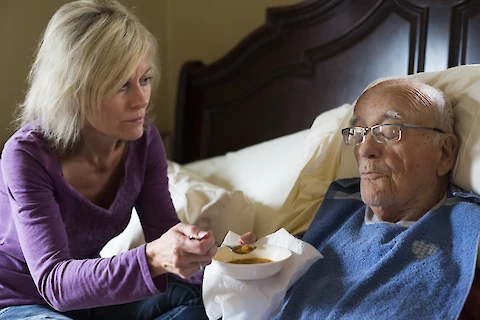
As we grow older, maintaining a balanced diet becomes increasingly vital for overall health and well-being. However, the reality is that some seniors face the serious challenge of dealing with eating disorders. These disorders are often overlooked in the elderly, due to common misconceptions that they primarily affect younger individuals. This gross underestimation can have severe consequences for our senior loved ones who might be suffering in silence.
As family caregivers, it's essential that we understand how to identify the signs and symptoms of eating disorders accurately and early. Learn the unique struggles faced by seniors dealing with eating disorders, the importance of early detection, and how to approach the topic with empathy and sensitivity. Armed with this knowledge, we can ensure that our senior loved ones receive the support and help they deserve.
What Are Eating Disorders?
Eating disorders are complex mental health conditions that affect a person's relationship with food and their body image. They can manifest in several ways, including anorexia, bulimia, and binge eating disorders. While these disorders are typically associated with younger populations, they are far from exclusive to them. Seniors, too, can develop eating disorders due to a multitude of factors like changes in routine, loss of control, and emotional turmoil.
Unique Challenges Faced by Seniors With Eating Disorders
Eating disorders in seniors can lead to a range of unique health complications. For one, physical health can take a hit. Eating disorders can exacerbate chronic conditions common in seniors, such as heart disease, diabetes, and osteoporosis. On top of that, mental health also suffers. Seniors with eating disorders may experience heightened feelings of loneliness and depression, which can lead to social isolation. Understanding these challenges is paramount to providing the necessary support to our senior loved ones.
Signs and Symptoms of Eating Disorders in Seniors
Recognizing an eating disorder in a senior loved one can be tricky, but there are tell-tale signals to look for. On the physical front, unexplained weight loss or gain, dental problems, fatigue, or dizziness could indicate an eating disorder. Behaviorally, you may notice changes in their eating habits, such as skipping meals, eating in private, or displaying an unhealthy preoccupation with dieting. Emotionally, signs of depression, anxiety, or obsession over body image may also be present. However, remember that symptoms can vary from person to person—it's the overall pattern that matters.
Importance of Early Detection
Catching an eating disorder early is critical for the senior's health and recovery. The longer an eating disorder goes undiagnosed and untreated, the higher the risk of severe health consequences. Early detection allows for timely intervention, which can significantly improve the person's chances of recovery and reduce the risk of long-term complications, enhancing their quality of life.
Approaching the Topic With Sensitivity
Addressing the issue of an eating disorder with a senior loved one requires utmost care. It's crucial to approach the conversation with empathy, understanding, and patience. Avoid judgment and focus on expressing your concerns about their health. Remember, your role is not to coerce them into accepting help but to open a dialogue and offer support.
Seeking Help From Healthcare Professionals
If your senior loved one exhibits signs of an eating disorder, seek professional help as soon as possible. A healthcare professional can provide a proper diagnosis and outline a course of treatment tailored to their specific needs. This could include a combination of medical treatment, psychotherapy, and nutritional counseling.
Connect With Senior Helpers Rockland South Orange Counties
Addressing eating disorders among senior loved ones is a delicate task that demands compassion, understanding, and knowledge. It's essential to remain vigilant for signs and symptoms and to be ready to offer your support. Remember, early detection is crucial, and professional help can make a world of difference.
If you need assistance in caring for your elderly loved ones in Middletown, New City, Spring Valley, or Nanuet, don't hesitate to contact us at Senior Helpers Rockland South Orange Counties. Our dedicated team is committed to providing the care and support your loved ones need during challenging times.